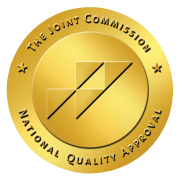What Is Narcissistic Personality Disorder
Once upon a time, in a land of social media and reality TV, the word “narcissist” started getting thrown around with surprising frequency. But Narcissistic Personality Disorder (NPD) isn’t just a TV trope or being selfie-obsessed or having a slightly inflated ego. It’s more like living in a hall of mirrors where every reflection is a distorted version of reality. And it is an actual personality disorder that should be treated as one.
Symptoms of Narcissistic Personality Disorder
So, what does NPD look like? It’s not just about loving your reflection a bit too much. People with NPD often have an inflated sense of their own importance, a deep need for excessive attention and admiration, and a lack of empathy for others. But beneath this mask of extreme confidence lies a fragile self-esteem that’s vulnerable to the slightest criticism.
Imagine a friend who not only thinks they’re the life of the party but also gets offended if not everyone agrees. Or a partner who seems charming and confident but can’t handle you disagreeing with them. It’s like walking on eggshells, except the eggshells have egos.
The Causes of NPD: It’s Complicated
Narcissistic Personality Disorder doesn’t just pop up out of nowhere. It’s more complex, more nuanced.
Let’s start at the beginning. Family. It’s where we learn to love, to bond, and apparently, where some of us learn to fall a little too in love with ourselves. For some, the story of NPD begins with parenting that’s extreme one way or another—either too hot or too cold.
On one hand, you have excessive pampering. Think of a child treated not just as special, but so special that the sun might as well rise and set just for them. On the other hand, there’s excessive criticism—never being good enough, always being compared to someone better.
In both cases, the message is warped. The child learns that love and worth are tied to achievements, appearances, or pleasing others—a recipe for a fragile ego dressed up as a giant ego.
Narcissistic Personality Disorder and Emotional Trauma
Sometimes, NPD stems from emotional trauma. This could be abuse, neglect, or even just unpredictable parental care. It’s like the child puts on armor to protect themselves, and this armor is made of narcissistic traits. It’s a way of saying, “I’ll never let myself be vulnerable again.”
It reveals a need for control, the lack of empathy, the sense of superiority – it’s all a way to shield that inner, wounded self.
Nature’s Role
Genetics can play a part, as well. While there’s no “narcissism gene” per se, personality traits do have a way of being passed down the genetic highway. So, if you’re thinking, “Well, Uncle Joe always did love a mirror,” there might be something to that.
Society and Culture
Lastly, let’s talk about the world we live in. A society that often rewards self-promotion, material success, and personal achievement can be a breeding ground for narcissistic traits. It’s like adding fertilizer to our narcissism seed—it just helps it grow all the more.
Narcissistic Personality Disorder Treatment
There’s no magic pill, but there’s hope.
Treating NPD isn’t like fixing a broken arm. There’s no cast you can put on someone’s personality. But there is therapy – and it doesn’t involve sitting in a room surrounded by mirrors. Treatment typically involves talk therapy (psychotherapy). It’s about gently challenging the person’s belief systems, exploring the reasons behind their behaviors, and teaching them better ways to relate to others.
It’s not a quick fix. Change requires the person to first acknowledge there’s a problem, which, let’s be honest, is a bit of a Catch-22 when it comes to narcissism. But with patience, persistence, and professional help, people with NPD can develop healthier ways of understanding themselves and relating to others.
NPD and Getting Help
Narcissistic Personality Disorder isn’t a fairy tale; it is a legitimate personality disorder, and it doesn’t have a magical ending. But understanding and treatment can lead to a better life—not just for those with NPD, but for everyone around them.
So, if you or someone you know is struggling with these issues, reach out for help. It might not be a journey filled with rainbows and butterflies, but it’s a journey worth taking. After all, the most important relationship we have is the one with ourselves—and sometimes, that relationship needs a bit of professional help.
More questions? Call Lido Wellness Center a call at 949-541-8466. Nestled in Newport Beach, our program is all about understanding and healing, not just pointing fingers. It’s a safe space to untangle the knots, one gentle pull at a time. Remember, seeking help isn’t a weakness; it’s the bravest thing you can do.




